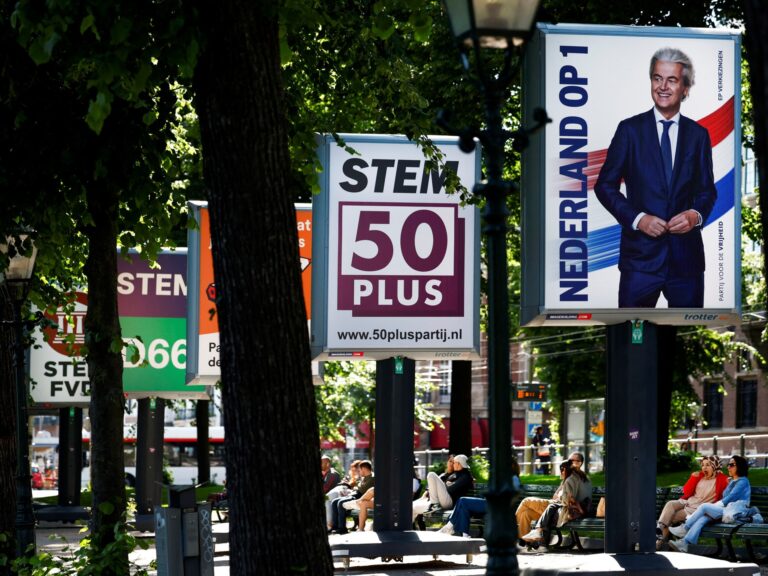Exit polls have shown a surge in support for populist Geert Wilders and his anti-immigration party following their victory in last year’s general election.
In the Netherlands, left-wing parties are expected to narrowly win the most seats in the European Parliament elections, despite far-right populist nationalist Geert Wilders’ anti-immigration party winning a large number of seats.
A nationwide exit poll published on Thursday by broadcaster NOS showed the Labour Party and the Green-Left coalition was expected to win eight seats, slightly ahead of Wilders’ Party for Freedom (PVV) which won seven.
Exit polls have a margin of error of about one seat.
The result marks a major step forward for Wilders, following his victory in last year’s general election, given that he failed to secure any seats in the last EU elections and was only able to win one seat following a Brexit-related party reshuffle.
“This is a very positive sign and a sign that things are changing for the Brussels elite,” Wilders told reporters in The Hague.
“The signal given by at least many Dutch voters today is that they want a different European Union and stronger nation-states, not more devolution to Europe, but just the opposite.”
Labour leader Frans Timmermans said the results showed that left-wing parties should not be ignored in this election, despite the rise of nationalist parties across Europe.
“As a pro-European party, we have shown the rest of Europe that the victory of the far right in these elections is not a given,” said the former EU climate chief.
European Parliament elections
The vote in the Netherlands kicked off four days of European Parliamentary elections across the 27-nation EU.
It summarises the main internal political challenge facing the EU: the growing popularity of nationalist and populist parties that want to dismantle the EU from within.
Wilders, known for his outspoken views on immigration and Islam, said on Thursday that a positive result for nationalist parties should encourage them to unite in efforts to change EU regulations and return more power to national parliaments.
The Labour-Green-Left coalition lost one seat from its 2019 election result but still appears set to hold the most seats overall after a campaign that saw constant warnings about the rise of nationalist parties.
The two left-wing parties ran the election as a joint party but after the vote they will form separate factions in parliament.
The actual results of the Dutch elections will be announced at 9pm GMT on Sunday, once voting has finished in all 27 member states.
The 720-seat parliament decides jointly with the EU’s 27 member governments on the EU’s single market, its 1 trillion-euro ($1.9 trillion) long-term budget, fiscal rules and climate change laws.
Surveys of voter intentions suggest the centre-right is set to win the most seats, with its candidate, German and incumbent European Commission President Ursula von der Leyen, seen as the favourite to be appointed to a second term.
The new parliament is due to decide on the EU’s next seven-year budget, which will come into force in 2028, with Ukraine, Moldova and the Western Balkan countries all seeking membership.

